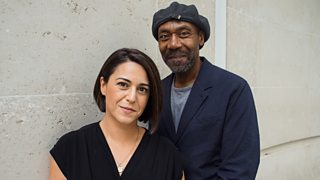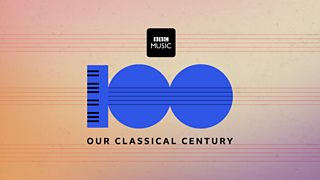
Ralph Vaughan Williams: Sinfonia Antarctica
Music that evokes the bitter chill and sacrifice of Captain Scott's fated expedition.
On 14 January 1953, Ralph Vaughan Williams Sinfonia Antartica was given its first performance by the Hallé Orchestra in The Free Trade Hall in Manchester. In the audience was an 18-year-old from Salford, Peter Maxwell Davies, who had paid 7/6 for a ticket that would give him a seat from which he could see the 80-year-old Vaughan Williams. "He was a very dignified old man with a hearing aid that kept whistling during the performance," Maxwell Davies later remembered.
The starting point for Vaughan Williams’ Antarctic Symphony was the film score that the composer had provided for the 1948 Ealing Studios film Scott of the Antarctic, starring John Mills as the ill-fated Robert Falcon Scott. Vaughan Williams was an enthusiastic and prolific composer of film music, believing that film was the great artistic medium of the 20th century. "I still believe that film contains potentialities for the combination of all the arts such as Wagner never dreamt of," he said. And indeed, he was so excited by the Scott of the Antarctic project that he wrote far more music than was needed, leaving him with lots of material to reuse, recycle and recompose into the five-movement, 40-minute Sinfonia Antartica.
Vaughan Williams deployed the biggest orchestra he’d ever used to conjure up the vast bleakness of the Antarctic, the wind and the cold, the ice floes, the penguins and the whales. One critic wrote: "The vast orchestra includes almost everything that tinkles, jingles or bangs, even bells, a vibraphone and a wind-machine, as well as women’s voices without words." The subject matter appealed to Vaughan Williams: the idea of human struggle through adversity towards a higher goal, the notion of a pilgrim’s progress. At the top of each of the five movements, he added a suitable quotation: before the first movement, a stirring quote from Shelley’s Prometheus unbound about how suffering and struggle can lead us to be "good, great and joyous, beautiful and free".
But things don’t always turn out that way. Before the last movement, Vaughan Williams inscribed Captain Scott’s words from his last journal, found with his frozen body where he had died with his men: “I do not regret this journey: we took risks, we knew we took them, things have come out against us, therefore we have no cause for complaints."
The 18-year-old Peter Maxwell Davies was inspired that night in the Free Trade Hall. Nearly 50 years later, he wrote his own Antarctic Symphony – but unlike Vaughan Williams, Maxwell Davies travelled to the Antarctic himself and experienced at first hand the sounds of the ice cracking, the avalanches, blizzards and, most of all, the silence of the wilderness.
This is one of 100 significant musical moments explored by �鶹������ҳ��� Radio 3’s Essential Classics as part of Our Classical Century, a �鶹������ҳ��� season celebrating a momentous 100 years in music from 1918 to 2018. Visit bbc.co.uk/ourclassicalcentury to watch and listen to all programmes in the season.
This archive recording features the �鶹������ҳ��� Symphony Orchestra with conductor Martyn Brabbins.
Duration:
This clip is from
Featured in...
![]()
The music of Our Classical Century—Our Classical Century
100 recordings to celebrate 100 years of exciting, inspirational, rule-busting music.
More clips from Our Classical Century
-
![]()
Step outside your musical tribe
Duration: 02:49



